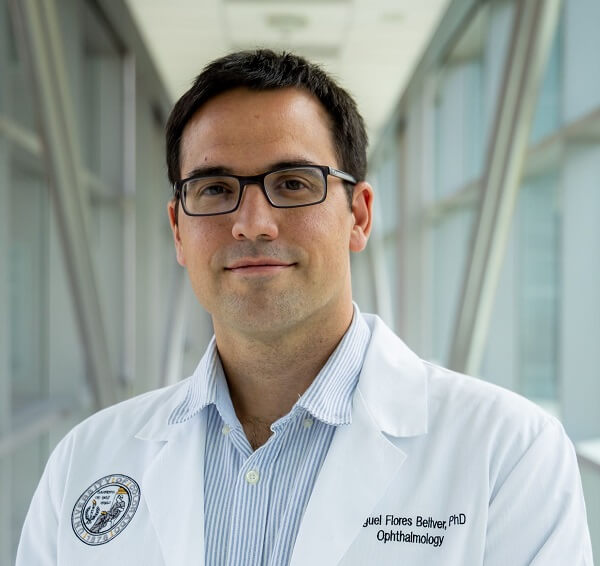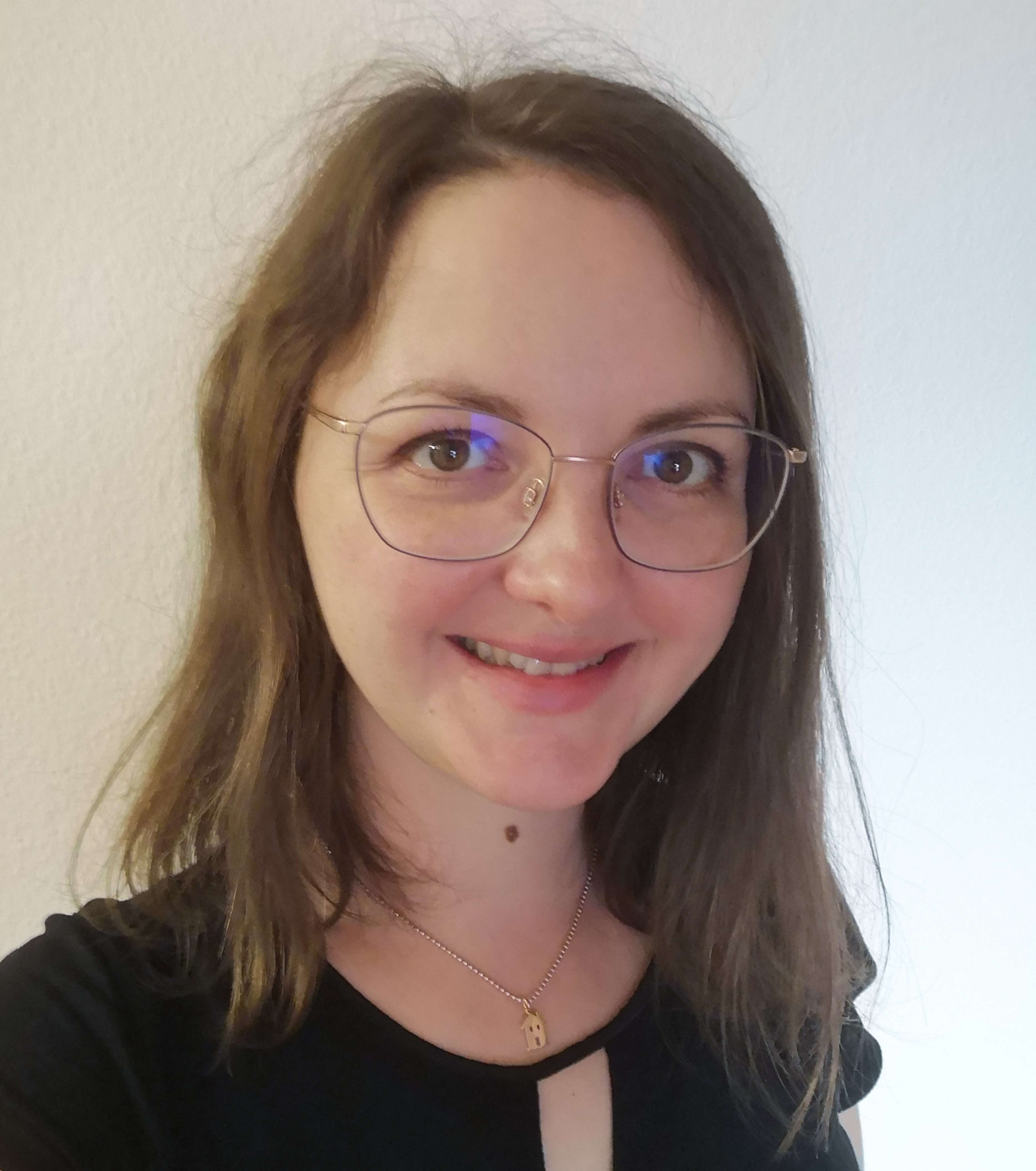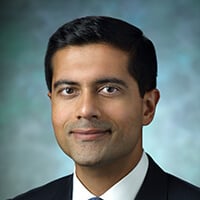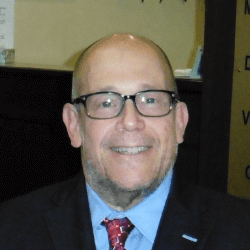The Bert M. Glaser, MD Award for Innovative Research in Retina is given annually to an early-career clinician-scientist or basic scientist in recognition of the discovery of a drug or technique, or of the understanding of a mechanism of disease, that is novel and has profoundly changed our understanding or treatment of a retinal disease or condition.
The recipient will receive a $10,000 award to further his or her research. The first award was given in 2019.
Applications open Aug. 1 – Oct. 1
View eligibility details and how to apply
2023 Bert M. Glaser, MD Award for Innovative Research in Retina recipient

Miguel Flores-Bellver, PhD
CellSight Program, Department of Ophthalmology
University of Colorado School of Medicine
USA
Biography
Miguel Flores-Bellver received a Pharm.D. degree in 2010 from the University of Valencia in Spain, followed by a Master’s degree in Biomedical Research in 2012. In 2015, he earned his International PhD in Cell and Molecular Biology from the Catholic University of Valencia. He then joined the Wilmer Eye Institute at Johns Hopkins University (Baltimore, Md.) as a postdoctoral fellow in Eye Development. Flores-Bellver stayed in this position until 2018 when he moved to the University of Colorado Denver as a postdoctoral fellow. In 2020, he was promoted to a faculty position as a research instructor in the Department of Ophthalmology and a principal investigator at the CellSight-Ocular Stem Cell and Regeneration Program. He is currently director of The Human Stem Cells Exosome Lab (ExoSight).
About Dr. Flores-Bellver's research
Age-related macular degeneration (AMD) is the leading cause of irreversible blindness and visual impairment in the elderly population. The long-term goal of the research carried out by Flores-Bellver's team is to contribute to a better understanding of the early events involved in early AMD. Dry AMD begins with the appearance of drusen, and the lack of therapies responds, to a certain extent, to our little understanding of drusen formation. To overcome this problem, Flores-Bellver's studies seek to understand how little vesicles called exosomes, secreted by RPE and containing cellular bioproducts, are delivered from unhealthy RPE and contribute to drusen formation and AMD progression. His team mimics dry AMD disease using stem cell-derived RPE tissue that recapitulates AMD mechanisms, including the formation of drusen. Under healthy conditions, exosomes secreted by RPE cells are enriched in proteins associated with mechanisms involved in AMD pathophysiology. Remarkably, exosomes secreted by RPE within an AMD environment significantly increased the release of well-known proteins associated with AMD that are crucial in drusen formation. Flores-Bellver's team provided the first evidence for a possible active role of exosomes released by RPE in drusen biogenesis. Furthermore, due to the exosome capacity to travel through different biofluids and since their cargo changes under pathological conditions, exosomes could provide the key to diagnosing AMD early and successfully treating it.
"It is a great honor for me to attain this unique award that commemorates Dr. Glaser's legacy as an innovator and retina specialist," says Flores-Bellver. "I thank Dr. Glaser's family and the ARVO committee for establishing this opportunity that recognizes an early-career investigator. I am immensely pleased to receive the award. I would never be able to reach this recognition without the help and support of my family, mentors, colleagues, and institutions. This award gives us more duties to improve our work and continue learning how asking the right kind of question in biological research could provide the solution to a problem such as age-related macular degeneration."
2022 Bert M. Glaser, MD Award for Innovative Research in Retina recipient

Magdalena Renner, MD
Institute of Molecular and Clinical Ophthalmology Basel (IOB)
Basel, Switzerland
Biography
Magdalena Renner, PhD, is leading the Human Organoid Platform at the Institute of Molecular and Clinical Ophthalmology Basel (IOB), Basel, Switzerland. Together with her team she is optimizing the culture of retinal organoids as a model for the human retina and retinal disease. She is particularly interested in enabling the mass production of retinal organoids and other cell types of the human eye to facilitate high-content compound screening and testing of novel gene therapy tools. Renner is the recipient of the Swiss OphthAWARD Best Experimental Work (2021), the PRO RETINA award of RETINA Suisse and PRO RETINA Germany (2021) and won first place for the VSY Biotechnology Ophthalmology Star Award (2021).
About Dr. Renner's research
Renner developed a method to generate thousands of artificial human retinas, so-called retinal organoids, from human pluripotent stem cells. She compared retinal organoids to post-mortem human retina and analyzed their cell type-diversity, morphology, light-responses and gene-expression. Importantly, she analyzed which cell types express known disease genes in both human retina and retinal organoids which validates retinal organoids as a promising new model to study retinal disease.
"I am very proud and honored to receive the award in honor of Bert M. Glaser," says Renner. "Being selected for the award is a great motivation to keep on innovating and making retinal organoids an even better model system for the human retina. I sincerely hope that by using a human model system to study retinal degeneration and develop new treatments, these treatments can be translated efficiently into therapies that help patients with visual diseases."
2021 Bert M. Glaser, MD Award for Innovative Research in Retina recipient

Yohei Tomita, MD, PhD
Boston Children's Hospital/Harvard Medical School
USA
Biography
Yohei Tomita, MD PhD, is a senior staff scientist in the Ophthalmology Department, Boston Children’s Hospital, a Harvard Medical School associate, and a visiting instructor in the Ophthalmology Department, Keio University School of Medicine. Dr. Tomita completed his MD at Shimane University in Shimane, Japan, and his ophthalmology residency, retinal fellowship, and PhD at Keio University School of Medicine in Tokyo. He joined Boston Children’s Hospital, and Harvard Medical School, as a research fellow. He is the recipient of the Young Investigator Award (2020) from the Japan Ophthalmological Society as well as the Young Investigator Grant (2020) from the Alcon Research Institute. He is a review editor for Frontiers in Immunology (the Autoimmune and Autoinflammatory Disorders section) and a member of the review board for Journal of Clinical Medicine. In addition, he is organizing a special issue “Retinal Disease and Metabolism” as an editor of Life.
About Dr. Tomita's research
Dr. Tomita is recognized for his translational research related to diabetic retinopathy (DR) and age-related macular degeneration (AMD). As an academic scientist, Dr. Tomita is motivated to understand molecular pathways in DR and AMD in order to develop new drugs for the prevention of disease. He is also developing a new instrument that can measure mitochondrial function in the retina in patients using Raman spectroscopy as well as a similar instrument that uses microfluidics and Raman to interrogate mitochondrial function in organoids based on induced pluripotent stem cells from patients with eye diseases. These instruments have promise to characterize retinal diseases in patients at an early stage to allow preventative treatment.
"I am very honored to receive this award," Dr. Tomita says. "Dr. Bert M. Glaser was not only a retinal surgeon but also a researcher, innovator, and teacher. He is one of my role models as a scientist/ophthalmologist. It is challenging for me to balance all these roles, but this award has motivated me to continue to go forward. I hope my work contributes to helping patients who are suffering from retinal diseases."
2020 Bert M. Glaser, MD Award for Innovative Research in Retina recipient

Daniel S.W. Ting, MD, PhD
Singapore National Eye Center
Singapore
Biography
Daniel S. W. Ting, MD, PhD is a consultant vitreo-retinal specialist in the Singapore National Eye Center, Assistant Professor in Ophthalmology with Duke-NUS Medical School Singapore and clinical lead for artificial intelligence (AI) in ophthalmology. He also holds an academic position as the Full Professor at the AI and data science center in Zhongshan Ophthalmic Eye Center.
Dr. Ting is the 2017-2018 US-ASEAN J. W. Fulbright Scholar to Johns Hopkins University, the founding member of the AAO AI taskforce and serves on several editorial boards, including Ophthalmology, Ophthalmology Retina, British of Journal of Ophthalmology. To date, he has published more than 140 papers, including 30 AI articles in JAMA, Nature Medicine, Nature Digital Medicine, Nature Biomedical Engineering, Lancet Digital Health, Progress in Retinal and Eye Research and Ophthalmology.
Dr. Ting is the recipient of the USA Macula Society Evangelos Gragoudas Award (2019), APAO Young Ophthalmologist’s Award (2018) and APTOS Young Innovator Award (2017). During his residency, he was ranked first in the US OKAP-international exam (2012-2014), awarded the FRCOphth McCartney Prize, overall best chief resident and graduated as the Valedictorian among 86 graduating residents at SingHealth, the largest healthcare institution in Singapore.
About Dr. Ting's research
Dr. Ting is recognized with this award for research related to the development of a deep learning system to detect three major blinding retinal conditions including diabetic retinopathy, glaucoma and age-related macular degeneration. This AI system was trained and tested in close to 500,000 retinal images, and the study finding was published in the Journal of American Medical Association (JAMA). Subsequently, this AI system was further tested to assess the systemic vascular risk factors related to diabetic retinopathy (Ting et al, NPJ Digital Medicine 2019) and also in Zambia, in detection of diabetic retinopathy (Bellemo et al, Lancet Digital Health 2019).
"I am extremely thankful and honored to be receiving this award," Dr. Ting says. "Dr. Glaser was a great innovator, retinal surgeon, and more importantly, a great teacher." He adds, "In the recent years, artificial intelligence (AI), in particular deep learning, has sparked tremendous interest in the technical and medical fields. In medicine, ophthalmology has always been staying at the forefront, leading the other medical subspecialties. In the next few years, the research direction of my lab will be mainly focused on clinical translation, medical ethics and safety regulation. Inspired by Dr. Glaser, I hope to be able to share my AI experience widely with the ophthalmology community."
2019 Bert M. Glaser, MD Award for Innovative Research in Retina recipient

Mandeep S. Singh, MD, PhD
Wilmer Eye Institute, Johns Hopkins University School of Medicine
USA
Biography
Mandeep S. Singh, M.D., Ph.D. is Assistant Professor of Ophthalmology at the Wilmer Eye Institute, Johns Hopkins University School of Medicine. He graduated in medicine and completed his ophthalmology residency in Singapore and earned a Ph.D. in ophthalmology at the University of Oxford focusing on retinal stem cell therapy. He trained as a clinical fellow in retina at Oxford Eye Hospital and Moorfields Eye Hospital, UK and then joined the Wilmer faculty as a clinician, surgeon and researcher. His research interests include retinal stem cell therapy, vitreoretinal surgical innovation and clinical trials in retinal degenerative diseases. His laboratory studies how to regenerate the retina using stem cells with a focus on photoreceptor cell transplantation to restore vision.
About Dr. Singh's research
Dr. Singh is recognized with this award for research into the phenomenon of cellular materials transfer, or “cell fusion,” between photoreceptor cells in the retina. When donor photoreceptor cells are transplanted into a recipient, instead of reconnecting with the retinal circuit, the cells tend to transfer cellular materials into recipient cells. The discovery of this new pattern of cellular behavior in the eye has increased our understanding of how retinal cells interact with each other and could lead to the development of new treatments to regenerate the retina.
Says Dr. Singh about receiving this award, "I hope that this work will contribute to the effort of creating new and effective treatments for people affected by retinal degenerative diseases. The Award is most valuable as it highlights the significance and potential impact of the work being done in the retinal regeneration research community, and will hopefully accelerate progress even further."
About Bert M. Glaser, MD
Bert M. Glaser, MD was an internationally respected retina surgeon, researcher and ARVO member for over 30 years. Dr. Glaser served as Professor of Ophthalmology and Vitreoretinal Surgery and as Director for the Center for Vitreoretinal Research at The Wilmer Eye Institute of The Johns Hopkins School of Medicine for over ten years. He established his private practice in 1989, called the The National Retina Institute, where he worked until his death in April 2017.
Dr. Glaser designed his practice with research and teaching in mind. The National Retina Institute participated in major national clinical trials and trained post-doctoral fellows in vitreoretinal surgery through a two-year medical and surgical fellowship. Dr. Glaser also founded his own research and development firm, Ocular Proteomics, to further his research interests.
As a passionate clinician and dedicated researcher, Dr. Glaser helped thousands of patients from around the world retain their vision in his long career. He developed or supported the advancement of numerous technologies including a treatment for macular holes, high-speed indocyanine green angiography for the management of macular degeneration and new treatments for diabetic retinopathy, retinal detachment, epiretinal membranes, giant retinal tears, proliferative vitreoretinopathy and retinal vein occlusions.
His work has been recognized by many medical and scientific societies, including receiving the Cogan Award in 1989, ARVO's prestigious award for young researchers who have made significant scientific contributions and show promise for the future.
Dr. Glaser earned his medical degree from Columbia University College of Physicians and Surgeons in New York City. He completed his ophthalmology residency and retinal fellowship at Johns Hopkins Medical School.

